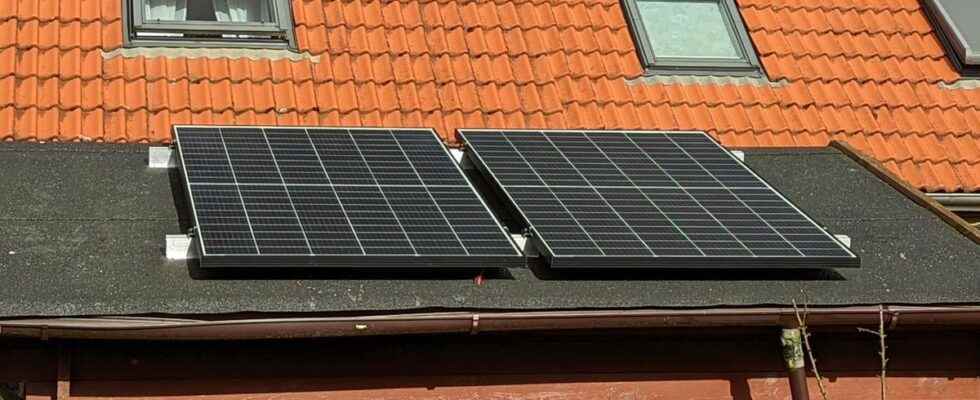Plug-in mini solar systems are currently very much in vogue. They can be installed for relatively little money and generate energy every day that you can use directly. However, the Renewable Energy Sources Act (EEG) is currently causing uncertainty, because operators of balcony power plants could face fines. There will only be a solution to the uncertainty in 2023
Penalty for balcony power plant because of 70 percent rule
In Germany, the EEG stipulates that solar systems with an output of up to 25 kilowatts may feed a maximum of 70 percent of the energy they produce into the power grid. Although mini solar systems with 600 watts only feed a fraction of the energy produced into the grid, the law also applies to such systems. For example, if you have a balcony power plant like me with two 300 watt modules and an inverter that outputs 600 watts, then this could theoretically also feed 600 watts and thus 100 percent of the possible power into the grid. That would be illegal and could result in a fine.
Many experts are currently not quite in agreement as to whether the regulation applies at all to balcony power plants that do not receive feed-in tariffs. The penalty could also only apply to solar systems that receive money for the energy fed into the grid. This does not happen with mini solar systems.
How can you protect yourself against this?
You can only effectively protect yourself from a fine if the inverter could deliver a maximum output of 70 percent. In that case it would be 420 watts. With a 400 watt inverter you would be on the safe side with a 600 watt system. Otherwise there could be a fine of 10 euros per kilowatt hour. With a 600-watt system, that would be 6 euros per month or 72 euros per year. Which of course would massively reduce the yield. As a result, many mini solar systems would no longer be worthwhile (source: Mimikama).
Another way to protect yourself from being fined would be to do this Proof that never more than 70 percent of the energy produced is fed into the grid. The purpose of a mini solar system is that the energy produced is consumed immediately because you do not receive any remuneration for the energy fed into the grid. For this you need a smart socket that measures the consumption (look at Amazon). For example, I produced 64 kWh in one month with my 600 watt system and fed in 18 kWh that I didn’t use. Since I’m giving away the 18 kWh, it makes no sense to feed the energy into the grid. Consumers like refrigerators, routers, computers, televisions and so on always consume some energy, so you should actually be on the safe side.
70 percent rule expires in 2023
In 2023 there will no longer be a 70 percent rule. At the latest then you are on the safe side (source: PV Magazine). So far, the new regulation was only intended for new systems, but should also apply to existing solar systems. This would then also apply to mini solar systems.
What you need to know about balcony power plants:
Grid operators try to prevent balcony power plants
I’ve been getting more and more emails lately from readers who have problems with their network operators. These do not want to accept the Schuko plug, require installation by an electrician and so on. Now the 70 percent rule could also be used as a deterrent to discourage people from installing a mini solar system.
For my part, I already stated in the simplified registration of the balcony power plant that the inverter has no restrictions. You also send the declaration of conformity there, so that the grid operator knows how much power your system has and that the inverter has no restrictions. I got the confirmation and should be on the safe side. But there was a lot to discuss beforehand, as it was the first facility in the relatively small town. However, the employees at network operators are all different, so you could have more or less problems. Our network operator even installs 600-watt systems themselves and they don’t have any restrictions either. Nevertheless, a clarification would be important in order not to slow down the boom.
Note: The content of the article has been revised. The part “70 percent rule expires in 2023” has been added.
